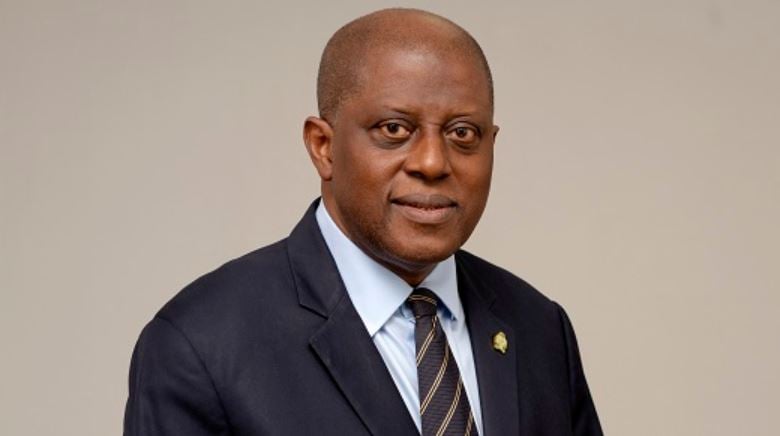With global oil prices falling to around $64 per barrel, far below Nigeria’s $75 budget benchmark, the country faces renewed fiscal pressure and foreign exchange challenges. However, sweeping reforms by the Central Bank of Nigeria (CBN) are helping to stabilise the naira, rebuild reserves, and boost non-oil foreign exchange inflows, even as global economic uncertainty deepens.
Nigeria’s 2025 budget depends heavily on crude oil revenue, but recent data show that the country’s actual oil production has averaged 1.5 to 1.8 million barrels per day, below the two million barrels per day target. This shortfall, coupled with falling prices, has placed the government’s oil revenue target at risk. Analysts warn that the fiscal deficit could widen to about 7 per cent of Gross Domestic Product (GDP), increasing pressure on the exchange rate and complicating efforts to curb inflation.
In its latest Article IV consultation, the International Monetary Fund (IMF) warned that Nigeria could miss its fiscal targets for 2025 unless it recalibrates its budget assumptions. The IMF urged urgent adjustments to align government spending with revenue realities, citing low oil prices, weak output, and limited capital spending.
To mitigate the impact of the oil price slump, the CBN, under the leadership of Governor Olayemi Cardoso, has introduced major reforms aimed at diversifying foreign exchange sources. These include promoting non-oil exports, strengthening diaspora remittances, rebuilding foreign reserves, and encouraging local production through backward integration.
Speaking at the 54th Annual General Meeting of the Manufacturers Association of Nigeria (Apapa Branch), Cardoso, represented by the Head of Division, Trade and Exchange Department, Mr. Aliyu Ashiru, said manufacturers must lead efforts to expand Nigeria’s forex earnings. “Nigeria must move from exporting raw materials to exporting value-added products. Incentives like tax holidays and export rebates should target manufacturers producing for export markets,” he said.
CBN data show that external reserves have risen from $38.9 billion in April to $43.4 billion by October 2025, the highest level in six years. This provides about 11 months of import cover, up from seven months at the beginning of the year. Analysts at United Capital Research said the trend is supported by strong oil receipts, improved remittances, and positive trade balances.
At the IMF/World Bank annual meetings in Washington, the CBN’s Director of Economic Policy, Dr. Mohammed Abdullahi, disclosed that the average monthly turnover in the FX market climbed to $8.6 billion in 2025, up from $5.5 billion in 2024. “Capital flows, which collapsed by over 75 per cent between 2019 and 2020, have improved significantly,” he said, adding that the FX market has become more transparent, with the CBN now acting as a net buyer rather than a net supplier of foreign exchange.
The CBN is also promoting non-oil exports, which grew by 19.6 per cent in the first half of 2025 to $3.23 billion, according to the Nigerian Export Promotion Council (NEPC). Increased demand for cocoa, cashew, and urea drove the growth, with shipments rising to 4.04 million metric tonnes, up from 3.83 million metric tonnes in 2024.
In the technology and telecoms sectors, Cardoso has urged companies to produce key inputs locally. During a February 2025 meeting with Airtel Africa Group CEO, Sunil Taldar, the governor called for local manufacturing of SIM cards, masts, and cables to reduce import costs and ease pressure on the naira. Taldar welcomed the move, pledging Airtel’s commitment to expanding its investment in digital infrastructure and local production.
According to Charles Abuede, Head of Research at Cowry Asset Management Limited, the CBN’s local production drive aligns with broader macroeconomic goals. “Reducing the high demand for forex by telecoms and manufacturers is key to easing naira pressure and supporting long-term price stability,” he said.
The impact of these reforms is already visible. The naira gained ₦33.50 against the dollar in October 2025, closing at ₦1,421.73/$1 in the official market, its strongest level since the introduction of the Electronic Foreign Exchange Management System (e-FEM). The CBN reported that external reserves rose to $43.17 billion in October, while the balance of payments recorded a surplus of $6.83 billion in 2024.
Foreign exchange utilisation across the economy rose by 19 per cent quarter-on-quarter to $9.3 billion in the first quarter of 2025, driven by an increase in invisible transactions such as services and remittances.
At the Washington investors’ forum, Cardoso said the naira has become “competitive,” and large businesses are shifting from import dependence to export orientation. He projected a positive trade balance equivalent to six per cent of GDP in the medium term.
With inflation moderating to 18.02 per cent and GDP growth projected at 4 per cent in 2025, Nigeria’s economy appears to be stabilising. The CBN expects the forthcoming $2.3 billion Eurobond issuance to further strengthen reserves and reduce fiscal strain.
However, experts caution that sustaining the reforms will require fiscal discipline. Oil revenue remains a key component of budget financing, and Nigeria’s exposure to crude price volatility persists. Economists have urged the government to expand non-oil tax revenues and rationalise spending to avoid widening deficits.
Global headwinds also pose risks. According to G-24 Chairman Pablo Quirno, emerging economies are struggling with weak trade, falling reserves, and tighter global financial conditions. He said, “Emerging markets face rising uncertainties and reduced policy space, highlighting the need for coordinated global responses.”
Cardoso admitted that while progress has been made, sustaining it will depend on policy discipline. “We have built resilience against shocks, but maintaining these gains requires consistent coordination between monetary and fiscal authorities,” he said.
